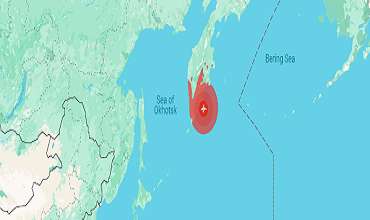Crop-destroying Armyworm caterpillar detected in Asia
A caterpillar native to the Americas that has devastated crops across Africa has made its way to Asia, scientists in India said Thursday, warning of a threat to food security.
Scientists at the Indian Council of Agricultural Research said a survey had identified fall armyworm or Spodoptera frugiperda on more than 70 percent of maize crops examined in the Chikkaballapur area of southern Karnataka state, the first time the armyworm has been spotted in Asia.
In addition to maize, the pest can devour more than 180 plant species including rice, cotton and sugar cane, according to the Centre for Agriculture and Biosciences International (CABI), a not-for-profit group.
A.S. Vastrad, a scientist with the University of Agriculture Sciences, said the yellowish-brown caterpillar had the potential to spread rapidly to India's neighbouring states and countries.
"The female lays eggs very rapidly and the pest has already entered two more Indian states, Tamil Nadu and Telangana," he told AFP.
The pest was first detected in Africa in 2016 and has since spread to more than 40 African countries causing massive destruction to maize, a staple food crop essential for food security in large areas of Africa and Asia.
It is likely that the armyworm arrived in India through human-aided transport after slipping through regulatory systems.
Natural migration is also a possibility as the moth can fly hundreds of kilometres in one night on prevailing winds.
"Rapid action is necessary as the pest has the potential to spread to other Asian countries owing to suitable climatic conditions and the prominent cultivation of maize in the region," CABI said in a report on its website.
Before turning into a moth the armyworm destroys young plants, attacking their growing points and burrowing into cobs in older plants.
Vastrad said farmers in India were using some pesticides on an ad-hoc basis which had proved effective so far but there was a danger of the worm becoming resistant over time.
The UN Food and Agriculture Organisation says it has invested more than $9 million from its regular budget and mobilised $12 million for its fall armyworm programmes.
-
Still No Comments Posted.


















Leave Comments